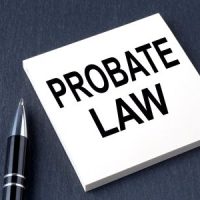Is a Probate Estate Liable for Back Child Support?

When it comes to paying creditors of a probate estate, some claims take legal priority over others. In fact, Florida law establishes eight different probate creditor classes. Those in Class 1, related to the expenses of administering the probate estate itself, take priority over all other claims. Another example is Class 6, which covers any “arrearage” or back child support the decedent owed.
Child support is established by law for the benefit of a minor child. If a parent is obligated to pay child support, their estate can be held liable for any payments that were missed prior to death. Of course, this assumes there are sufficient assets in the estate to cover such arrearages after all debts in any higher classes are paid. And it is worth noting that the estate is only responsible for child support obligations that accrued before the parent’s death. The parent’s death terminates any support obligations moving forward.
Florida Appeals Court: Ex-Wife’s Delay in Seeking Child Support Enforcement Not a Bar to Recovery
Florida courts take child support arrearages quite seriously, even in probate cases. A recent decision from the Florida Second District Court of Appeal, Holley v. Erwin-Jekins, offers a useful illustration. In this case, the decedent was married in 1987 to a woman and the couple produced one child. The decedent and his wife divorced in 1994. Under the terms of their divorce judgment, the decedent had to pay his ex-wife $195 per week in child support until the child reached the age of 18, which occurred in 2005.
But according to the ex-wife, a few months after the divorce became final, the decedent said he lost his job and could afford to pay $100 per week. He promised to resume paying the full $195 per week but never did so. Several years elapsed, until in 2016, the ex-wife filed a motion to enforce the decedent’s child support obligation. While that was pending, the decedent passed away in 2019.
The decedent’s will named his long-time girlfriend as the personal representative and sole beneficiary of his probate estate. (The girlfriend later passed away and her sister took over as personal representative of the decedent’s estate.) The ex-wife filed a creditor claim with the estate seeking payment of the back child support. The estate objected to the claim, prompting the ex-wife to file a separate lawsuit seeking to enforce the child support obligation.
Following a bench trial, a judge dismissed the ex-wife’s complaint, citing the “doctrine of laches.” This is a legal defense used in civil cases where the defendant shows there was unreasonable delay by the plaintiff in pursuing relief. Here, the defendant waited more than a decade after the decedent stopped paying child support to initiate an enforcement action.
But the Second District said that laches should not be applied here and reversed the trial court’s dismissal. The appellate court noted that public policy in Florida disfavored laches “except in the rarest of circumstances.” And since the ex-wife presented sufficient evidence establishing the decedent still had child support arrearages when he died, the Second District ordered the trial court to calculate the appropriate damages owed by the estate.
Contact a Florida Trust and Estate Litigation Lawyer Today
If you are involved in a probate dispute involving a creditor claim, it is important to seek out timely legal advice from a qualified Pompano Beach estate and trust litigation attorney. Contact Mark R. Manceri, P.A., today to schedule a consultation.
Source:
scholar.google.com/scholar_case?case=3621586552069285212

 Mark R. Manceri, P.A. is a boutique law firm that specializes in Estate, Trust and Guardianship litigation. These matters include Will and Trust contests involving lack of capacity, undue influence, forgery, improper execution and tortious interference...
Mark R. Manceri, P.A. is a boutique law firm that specializes in Estate, Trust and Guardianship litigation. These matters include Will and Trust contests involving lack of capacity, undue influence, forgery, improper execution and tortious interference...